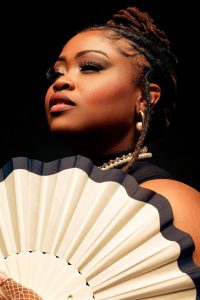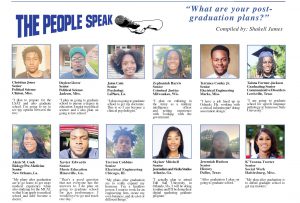“I been grinding outside, all day with my n****/And I ain’t going in, unless I’m with my n****/My n****, my n****”! These lyrics to West Coast rapper YG’s hit song, “My N****”, have once again sparked debate among my peers on the use of the N-Word.
Whether you have grown up in an African-American community, listen to hip-hop music, or just simply attend Jackson State University, I am sure you have heard the N-word used casually on several occasions in different contexts.
On the campus of JSU however, the use of this word concerns me, especially when you consider the growing racial and age diversity of our students. All of these issues lead to the age old question: Is it ever okay to use the N-word?
Throughout history, there has never been a word so inflammatory, with such a wretched, horrific, and bloodstained past in the English language. And yet the N-word is so heavily used in African-American culture in everyday conversations that it would seem that a lot people in our generation are oblivious to history of the derogatory word or even what that word truly represents.
This is especially evident in what I call today’s generation of “ratchet music”, which is widely listened to by all races from artists such as YG, Trinidad James, and Rich Homie Quan for example. Even on the video sharing website, Vine, you have videos of people who are not Black using the word as if it is okay.
Here is a bit of history. The N-word originated from the word “Niger” which is Latin for black. In the southern United States, the pronounciation changed to what is heard today. In the early 1800s, it was established as a racial slur used to refer to slaves and Blacks and came to mean lazy, stupid, and dirty. Now the N-word has became a fixture in our community with many believing that there is a difference between being called “N***er” and “N***a”.
Julian Taylor, a senior sociology major from Biloxi, Miss. said, “Well when it comes to N***er, you would think about it being racist, referring to Black people, but when people say n***a with the –a at the end, I’d say it’s okay to say it. I wouldn’t say use it all the time but if you just say it by accident, then it’s not a big deal. The –er is what sets it off”.
Laquavia Bowie, a junior psychology major from Jackson, Miss., believes that the N-word should not be used at all.
“I don’t agree with the use of it because it’s like using the B-word or something. I just feel like you should keep it to yourself. You shouldn’t just say it to everybody freely. I don’t use it period. It still has a negative impact because some people are very sensitive towards it. I wouldn’t want anybody calling me that. I’d get offended. I don’t care if you’re black, white, whoever. I don’t want nobody calling me n***er”, said Bowie.
Ultimately, whether or not you choose to use the n-word is all a matter of personal choice. However, for those who do choose to freely use this word, understand that despite what you may believe, it is still an extremely harsh racial slur and those who are not of our race understand it to be so. And even within our race, many of our elders look at us with bewilderment and disgust when we use this word so freely. I am not saying you have to impress these people, but for our own sake, we have to show some self respect as far as the language we use to refer to each other.
I also find it hypocritical that we get so angry when other races use it, but when we use it for each other its okay. It is a double standard that is hurting us and the bottom line is if you are going to say the N-word, then you have no right to get mad when other people use it.
Our generation should be more aware of what the N-word truly stands for in our community and be mindful of the way we use it. It would be a shame if Phillip Gibbs and James Green were alive today, hearing this word ringing on campus so much like the bullets that killed them rang out so many years ago.






Be First to Comment